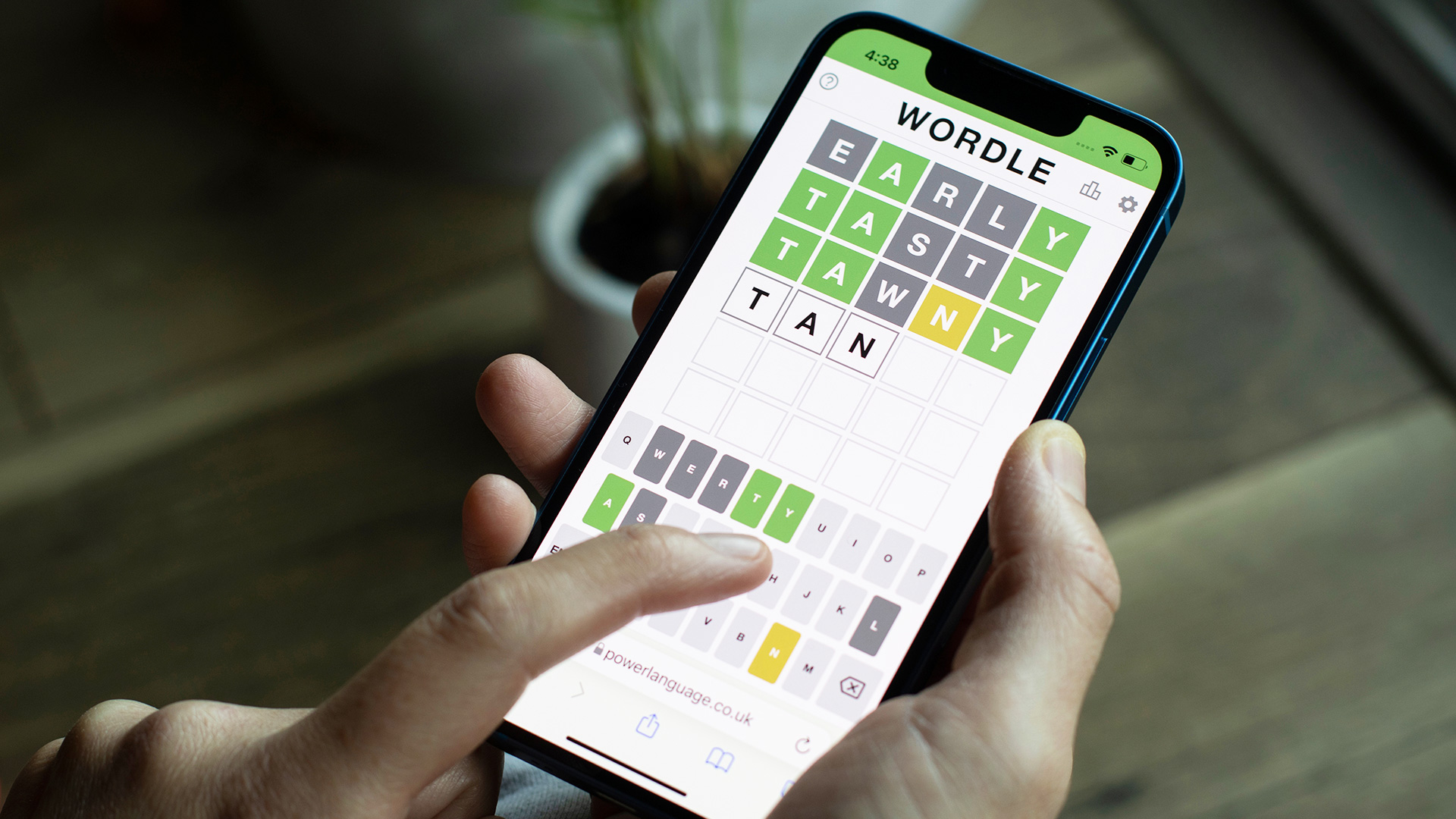No, Wordle hasn't gotten harder since the NYT takeover — here's the proof
People are complaining that hit word game Wordle has got harder, but the evidence opposes that

Let's get this out of the way immediately: The New York Times has not made Wordle harder since it completed its takeover of the hit word game.
That's a fact, and I shall prove it below. What's more, you could actually argue that the NYT has made the game slightly easier — and yes, I know plenty of people won't believe me on that. So what's going on here?
Well, ever since Wordle was bought by the NYT for a figure in the "low seven figures" a couple of weeks ago, regular players have complained that the answers are a lot trickier to guess. For this reason, Wordle is close to losing many of us.
Today's game, #242, is unlikely to change that. Without giving the answer away, it is among the more obscure solutions in Wordle's word list. And predictably, many players have taken to Twitter to share their displeasure.
"Does the @nytimes realise wordle is meant to be fun??" reads one Tweet today. "Nothing to see, just @nytimes on its way to ruin the only good thing," says another. And there plenty more like that.
Me since the @nytimes has taken over Wordle:#Wordle242 pic.twitter.com/FfRihAzSAXFebruary 16, 2022
Wordle 242 X/6 #Wordle242 pic.twitter.com/SEMITY5NncFebruary 16, 2022
Wordle 242 4/6⬜⬜🟨⬜⬜⬜🟩⬜⬜🟨⬜🟩🟨🟨⬜🟩🟩🟩🟩🟩 These words have been getting harder since NY times took over -_- #wordle242 #wordleFebruary 16, 2022
Oh man, there are gonna be so many complaints after this one. @nytimes brace yourselves…Wordle 242 3/6⬛⬛🟨⬛⬛⬛🟩⬛🟩⬛🟩🟩🟩🟩🟩February 16, 2022
That feeling when you somehow got today’s #wordle even though it was forged in the fiery furnace of satan’s nest pic.twitter.com/NeNvsiXTnzFebruary 16, 2022
And these are hardly isolated incidents, with people claiming the game has got tougher almost as soon as it moved to the NYT.
"It must be a coincidence, but the NY Times puzzles are hard and suddenly Wordle has questionable words," author Anna Spargo-Ryan tweeted recently.
Get instant access to breaking news, the hottest reviews, great deals and helpful tips.
The NYT says that's definitely not the case. "Nothing has changed about the game play,” New York Times communications director Jordan Cohen said in an email to The Guardian and both the NYT and the game's creator Josh Wardle have previously stated that nothing would change with the transfer.
It's actually very easy to confirm it one way or the other. Because Wordle is a standalone game that exists entirely within a browser, you can easily access its word list and view the total list of solutions.
I've done this myself, comparing the original word list from before the NYT takeover with the current list on the game's new page, and can confirm, as others including The Verge have, that the NYT has not added any new words to the possible solutions.
It has, however, removed six words that were in the pre-takeover game. Three of these were removed due to potentially being offensive, but another two were specifically taken out because the NYT worried that they might be too obscure. The final one was dropped because it uses a U.K.-English rather than U.S.-English spelling. That might well have tripped up a few people in the U.S. — just as several solutions have proved tricky for those of us in the U.K.
So there you have it — the NYT hasn't added harder words, but it has removed a couple that might have been really tough. Yes, the NYT has made Wordle easier.
Of course the other way that the NYT could be appearing to make Wordle harder is in its selections. And while the total word list may not have changed much, the order has now diverged from that of the original game.
That first became apparent yesterday (February 15), when the answer for puzzle #241 was different on the old version to the new one. And the two are also different today, for number #242.
Therefore, anyone who is playing on a downloaded version of the original game, or who hasn't refreshed their browser window since the NYT bought Wordle, will see a different answer from the majority of players — and it just so happens that both of the 'original' solutions since the two diverged have been a little easier than the NYT ones for the same day.
But none of that means that the game is getting harder overall. Even if the past couple of days have seen some harder answers, that merely means that the remaining solutions will be slightly easier than they would have otherwise been. What you lose now, you gain in two weeks, two months or two years.
Besides, plenty of the answers since the NYT buyout have also been pretty straightforward — with some recent solutions including THOSE, SKILL, FRAME and PAUSE, none of which could be considered particularly hard.
I suspect that there's a certain amount of confirmation bias at play here. Many people were opposed to the NYT takeover in the first place and worried that the game would be ruined, so (whether consciously or not) they are now seeing patterns in the solutions.
Plus, some of the NYT's other games — its fiendish crossword and Spelling Bee, for instance — are pretty tough. That might also lead people to assume that Wordle's difficulty will increase and again look for patterns in recent solutions.
But the fact is, that's not happening. Wordle is no harder than it would have been, it's still free to play and it's still a great way to spend 10 minutes each day.
So that's that. But if you want to improve your chances of winning, you could make sure you use one of the best Wordle start words and get some practice in by playing the Wordle Archive. And if you really want a challenge, you could also take on others online via Squabble, the new battle royale version of Wordle or try the super-tough Star Wars-themed SWordle. Good luck out there.

Formerly Editor in Chief (U.K.) on Tom’s Guide, Marc oversaw all gaming, streaming, audio, TV, entertainment, how-to and cameras coverage, and was also responsible for the site’s U.K.-focused output. He is now U.K. Editor in Chief on TechRadar. Marc previously edited the tech website Stuff and has tested and written about phones, tablets, wearables, streaming boxes, smart home devices, Bluetooth speakers, headphones, games, TVs, cameras and much more. He also spent years on a music magazine, where his duties mainly involved spoiling other people’s fun, and on a car magazine. An avid photographer, he likes nothing better than taking pictures of very small things (bugs, his daughters) or very big things (distant galaxies). When he gets time, he also enjoys gaming (console and mobile), cycling and attempting to watch as much sport as any human can. He's also fallen in love with Wordle over the past six months and is the author of our today's Wordle answer column, in which he supplies hints and strategy tips for the mega-popular word game. Given he's completed every single Wordle so far and only lost once, and analyzed every Wordle answer in search of patterns, he's well qualified to help you safeguard your streak.
 Club Benefits
Club Benefits





